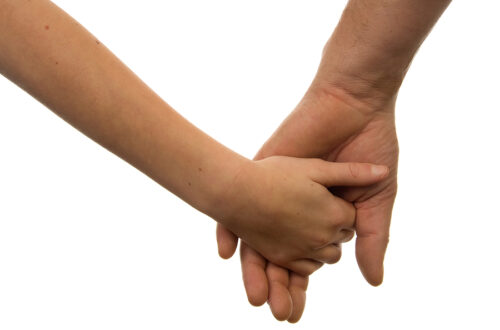
The Beauty of God’s Diverse Children
Breathing the crisp morning air on any weekday in 1976 meant I was on my way to school. From our apartment, I could hear the screeching sound of brakes making their way to our stop. On the corner of Harry Hines and Wolf St., the bus picked up students who lived in Little Mexico Village to take them to the nearby schools.
In the beginning, I tried to sit only with my brothers and sisters. The first time I rode the bus, I felt afraid and kept to myself. That’s what happens when you face all kinds of different. Fear almost always welcomes you, but soon curiosity gets a hold of you, and soon it may even introduce you to bravery.
Standing in the aisle with no place to sit, a girl my age plopped her bag on my seat. "Hi. What’s your name?” The girl who I would soon identify as my best friend had braids all over her head. "How long do you have to sit to have your mom braid your hair?" I asked. She almost always smiled at all my questions. And as quickly as she answered, she also threw all kinds of stuff my way. "Why do you eat tortillas with everything? Do you like bread? How many brothers and sisters do you have, anyway? Are you Catholic? I love Jesus, do you?"
As a kid, I never thought twice about her questions. Instead, I loved every minute I spent with her. Together we grieved our fathers—hers in prison, mine disappeared. We admired our single mothers—mine trying to raise eight kids, hers trying to balance work, school and raising a family. We grew together in accepting and loving each other the way Jesus wanted us to do.
That school year I learned to jump rope like a beast and she learned Spanish. We both tackled the monkey bars and the side by side uneven bars in the playground at school. We encouraged each other to hang from our knees upside down and swing. We giggled, spied on others, and we told stories of rescues, riches and fame.
And we did the impossible—the one thing we agreed we could never do. We climbed to the top of the side by side uneven bars to flip around using only one leg. Keeping our chest forward and our hands wrapped tightly around the bar we carefully swung our left leg off, so we only had the bar right behind the back of our right knee. And we moved our bodies forward and round and round we went with no cares in the world.
Despite our obvious and not so obvious differences, we experienced acceptance and love in the midst of something unusual and extraordinary. In poverty and abandonment, we felt rich in a friendship that brought us joy and hope. And I learned something valuable that school year—something that has changed the way I approach all people.
Seek to learn from everyone God puts in your life. In other words, don't judge a person by the way they look. Find ways to learn and try to listen. Remember, God uses all kinds of folks to speak into our lives.
Embrace the complexity in differences. I have never regretted the time and effort I have spent in my friendships especially with others who have spoken truth in my life. When I want to dismiss people, I remember my sweet friend and I pray to seek to love others exactly the way God made them.
See the beauty of God’s creative and diverse children. When I sang in my youth choir at church, I learned that an audience will hear more depth when everyone in the choir sings their parts. Singing in unison sounds okay, but singing in parts carries the diversity of the song. It's the same way in our relationships. Our diverse relationships will show others the differences that exist in the church, and it will also exhibit the church uniting in our worship of God. The beauty of praising together will echo the depth and greatness of God’s beauty.
We live in a sea of diversity. God made us uniquely different and distinct from one another, and nothing less than the glory of God is on display in all of our diverse relationships. God charged the world with diversity, delights in diversity, and will ultimately have the diverse church for which Jesus died (Rev. 5:9). Reflecting on the variety of creation, Annie Dillard remarked, “the Creator loves pizzazz.” Shouldn’t we?
As a seven-year-old girl, I cared more about what it meant to love others than I did about what others thought. I often remember my sweet friend and our times together. Not long after our famous one-legged spin, my mother moved us out of the city to suburbia land. What happened to her? What happened to me? Do I love the way Christ loves me? I have no doubt I will see her again soon, and we will continue where we left off—living together with no cares in the world.



